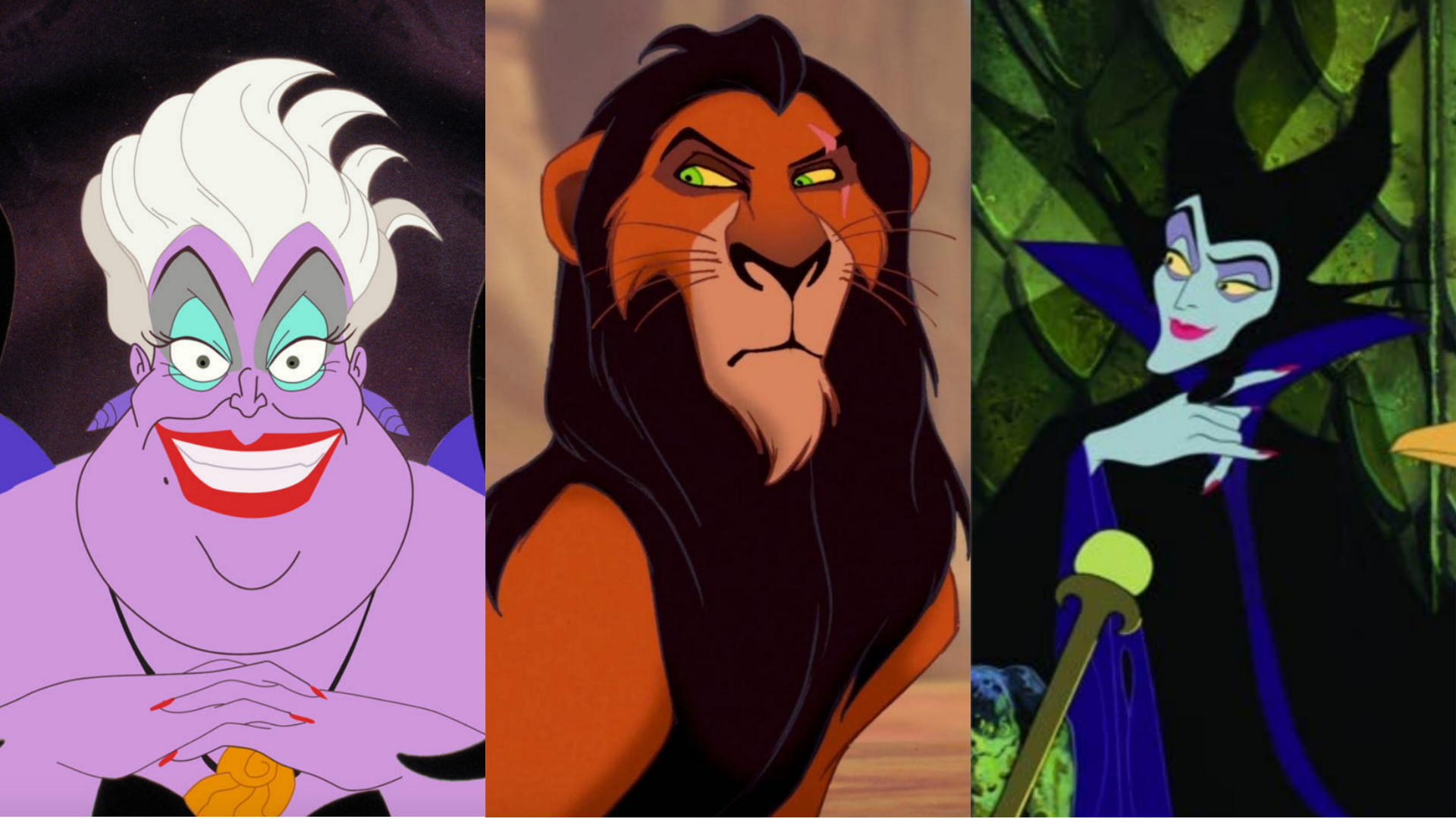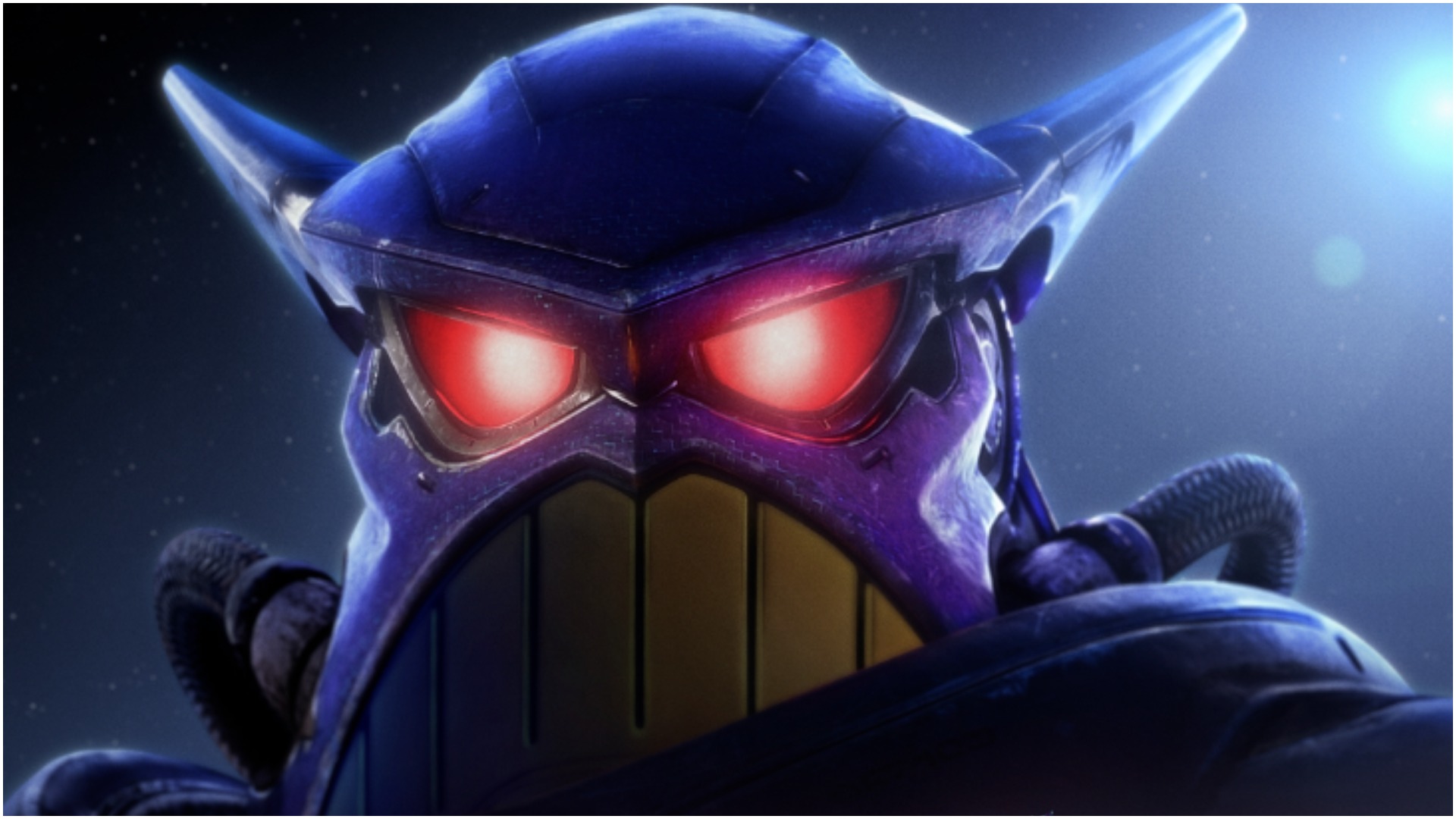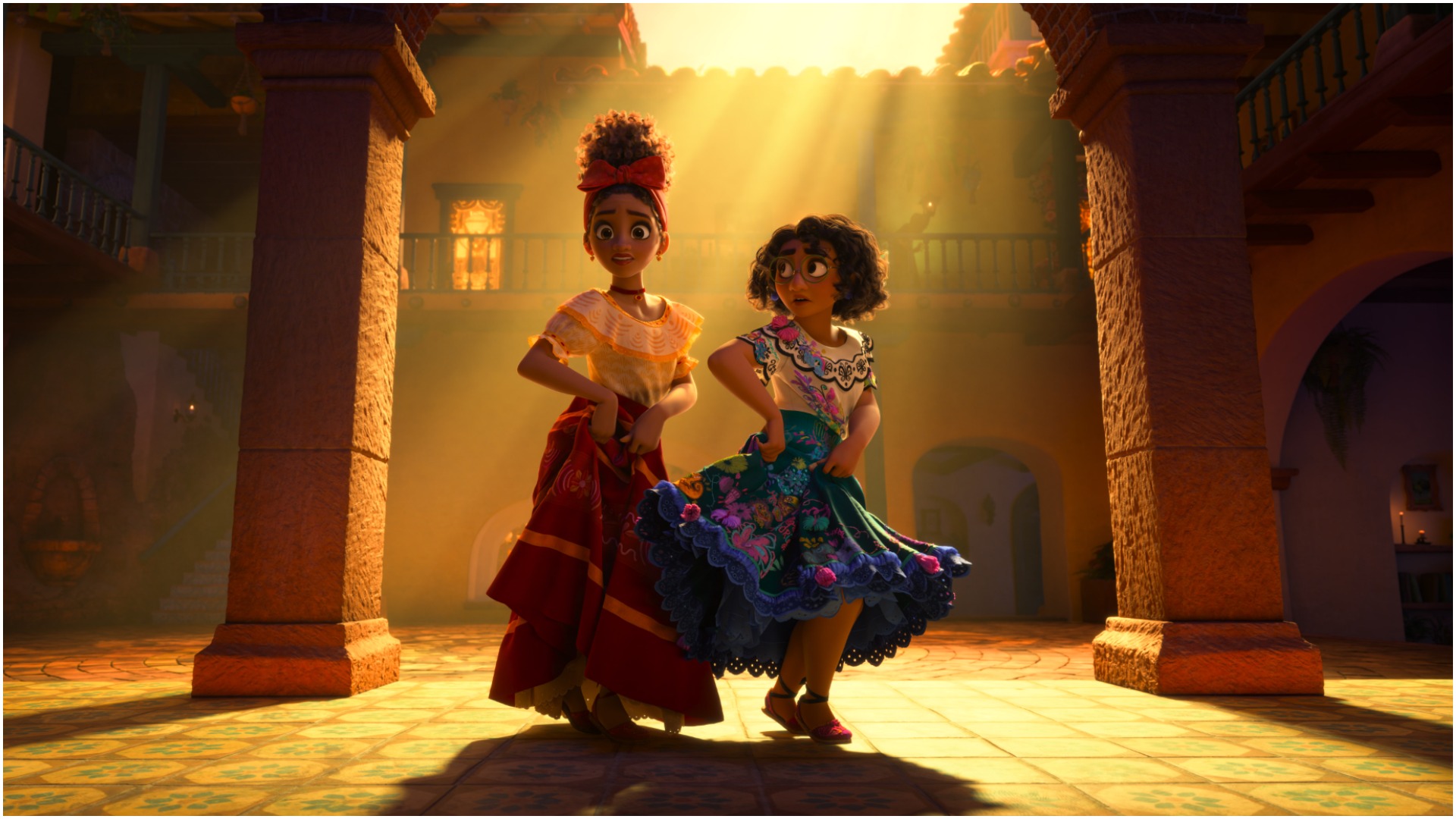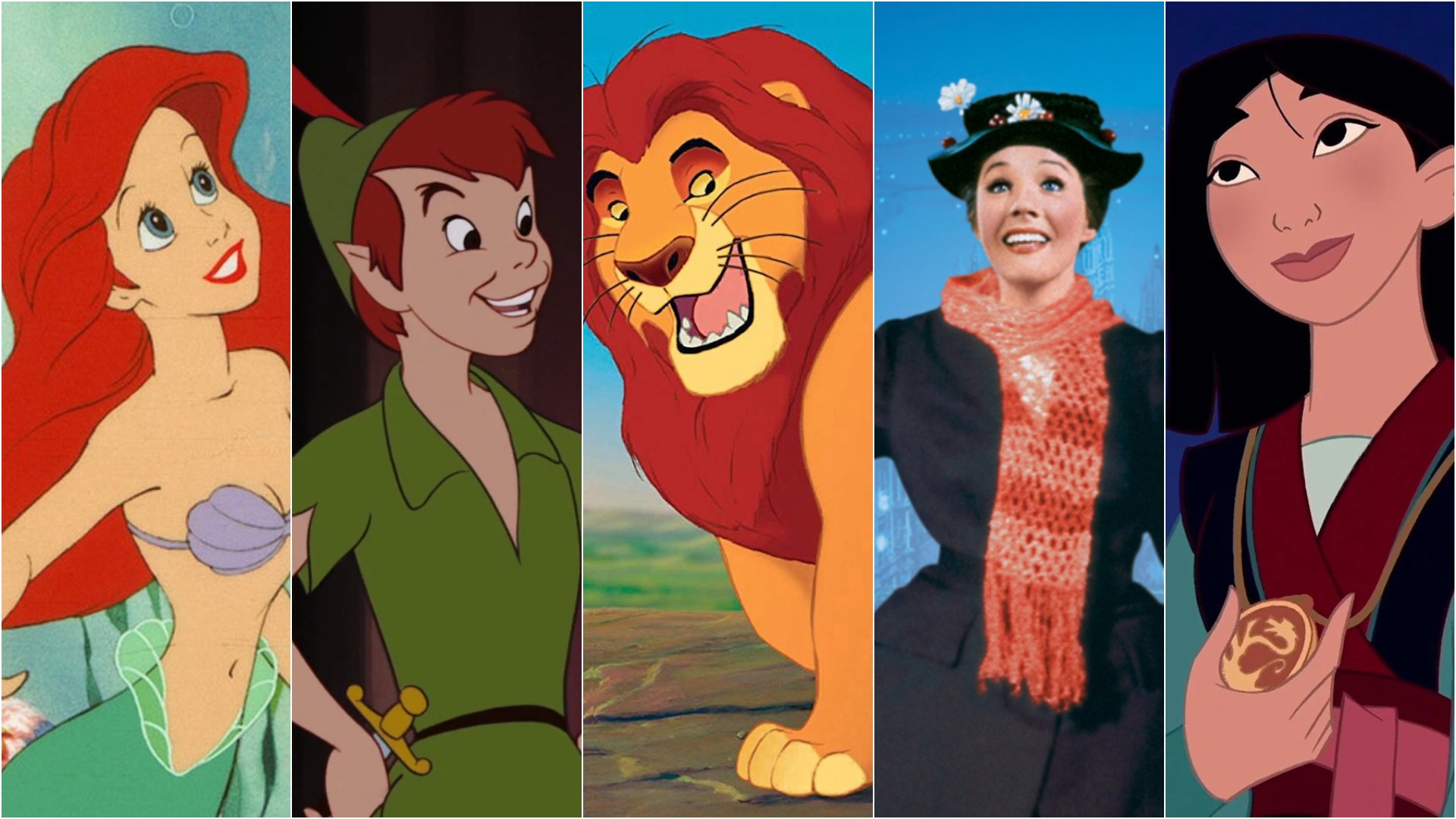Disney villains are becoming a thing of the past – but that's not for the best
The Disney villain deserves a comeback

Disney and Pixar are moving beyond traditional villains. Instead of following the classic good vs. evil narrative, their newer movies are delving deep into themes: Soul explores the meaning of life and death; Luca examines what it means to be an outsider; and Lightyear reminds us of the value of teamwork. Multiple recent films have told intergenerational stories, like Encanto, Turning Red, and Frozen 2. Each one of these movies is wholly unique, but they all share something in common: they lack a classic Disney villain.
To be clear, a Disney villain is a little different to a basic antagonist; Luca and Soul both feature someone working against the main characters, but they're not quite villains. Disney bad guys tend to be delightfully evil and carry a certain dramatic flair – think The Lion King's Scar, Beauty and the Beast's Gaston, Aladdin's Jafar, and The Little Mermaid's Ursula. And if they don't fall into that category, they're instead downright, spine-chillingly scary: that's The Hunchback of Notre Dame's Frollo, Toy Story's Sid, The Incredibles' Syndrome, and Snow White's Evil Queen. Every single one of them is bad to the bone, and they're nearly all as beloved as the heroes they fight. Yet, look through Disney and Pixar's recent output, and these stylish, sinister characters are nowhere to be found – and that's not necessarily a good thing.
It's hard not to miss these larger than life villains when these studios are just so good at creating Big Bads. After all, they've given us some of the most iconic villains in pop culture history, with a few even getting their own spin-offs (hello, Cruella). More than that, some movies suffer without a primary antagonist. Take Lightyear, the Buzz spin-off that, in a strangely meta way, is supposedly the movie that the toy in Toy Story is based on. Toy Story 2 gives Buzz a menacing opponent: Zurg, the purple action figure with the glowing red eyes. But in Lightyear, the villain is deconstructed and reinvented in a way that essentially makes him a personification of the film's themes, doing the story and the character's potential a massive disservice.

To get into this, we need to talk spoilers for Lightyear. If you haven't seen Pixar's latest, turn back now… So, in Lightyear, Zurg isn't Buzz's father, but actually an older version of Buzz himself thanks to some hyperspeed time dilation. The movie transforms into the story of Old Buzz, who was closed off from being helped by others, versus the new and improved Buzz, who has learnt to be nice to his crew mates. Zurg ends up barely being a character in his own right, instead simply a dark reflection of the main hero. As a result, Lightyear's much weaker than it could have been, especially as the big reveal is saved until the movie's final moments. Before that point, the story is sustained by simply seeing Buzz's own character development, leading to a meandering second act. And when Zurg's moment comes, his character is so baked into the themes of the story that it feels anti-climactic. In a film meant to be a true sci-fi adventure, it's strange to sacrifice a classic good vs. evil story for a lesson in teamwork – something that could have been better highlighted with a proper, dastardly villain for Buzz and his pals to foil.
That's not to say recent Disney and Pixar movies have necessarily suffered for lack of Big Bad. Forgoing a proper villain can open the door for a wide variety of storytelling, and sometimes their presence just isn't needed. Soul has the antagonistic afterlife accountant Terry, who tries to take the protagonist Joe back into the Great Beyond. The movie doesn't build to a confrontation between the two, but rather Joe's realization that there's more to life than just jazz music. Without that traditional narrative structure, Soul has the freedom to dive headfirst into the existential questions it asks. Similarly, Luca has the bully Ercole, who exists as an obstacle to drive the plot: the climactic moment comes when Luca reveals himself as a sea monster to protect Alberto, a culmination of the film's exploration of being different and the friendships we make during childhood.

Eschewing a villain can also give more room to looking at specific cultures. Encanto is deeply rooted in Colombian culture and tackles a story that spans generations – the trauma of what happened to Alma in the past propels the narrative, and Mirabel and the other Madrigals wrestle with healing the family's scars inflicted so long ago, symbolized through Bruno (of "We Don't Talk About Bruno" fame). In similar fashion, Turning Red is anchored by exploring generations of a Chinese-Canadian family, with the red panda curse passing from mother to daughter. When the main character's mother starts tearing apart the 4*Town concert looking for her child, she's not a villain – and her daughter's struggle through the movie is tied to their relationship and the need for self-acceptance. There's no dark forces at play.

In the end, turning away from villains was a shake-up for both Disney and Pixar. However, when you consider how many of the latest releases go without a classic Big Bad, returning to that storytelling would be more than welcome. Clearly, giving the bad guys a break lets some movies have room to breathe – but others only suffer. Both studios are so adept at creating instantly iconic baddies that it would be a shame to move away from that archetype entirely. Next up on Disney's animated release slate is Strange World, while Pixar has Elemental in the works. It's unclear if either will feature a traditional villain, but here's hoping they make a wicked return to the big screen soon.
Sign up for the Total Film Newsletter
Bringing all the latest movie news, features, and reviews to your inbox

I'm a Senior Entertainment Writer here at GamesRadar+, covering all things film and TV for the site's Total Film and SFX sections. I previously worked on the Disney magazines team at Immediate Media, and also wrote on the CBeebies, MEGA!, and Star Wars Galaxy titles after graduating with a BA in English.


